2023 so far
The first four months of the year
If I have to sum up how 2023 has been, it would be “challenging”. But it wasn’t challenging only because of my personal projects, but also because of my struggle with mental health. Here, I have recapped some of my learnings through my projects, which have proved to fuel my curiosity and give me fresh perspective. But I will write an article soon on my personal struggles, to open up the space to have hard conversations.
Before we dive in, I am proud to say that my team was selected as the Top 5 teams to propose their solution to Walmart, based on our solution Skip the Q. (Read my last newsletter for details about the project)
TKS Focus Hackathon
The 24-hour hackathon was set to kick off at 3:30 AM IST on 21st January. We were assigned to use emerging technologies to find a solution that could drive impact.
With the start of the hackathon, we started to list out ideas and researched them until 6 AM when we went off to sleep.
We decided on using gene-editing tools to make coral reefs more resistant to environmental stressors, such as toxic chemicals, by putting forward CoralGenix, CRISPR-Cas9-induced probes for the regeneration of endangered coral reefs. Our solution would replicate the detoxification enzyme producing genes in coral polyps, so that they could process harmful xenobiotics.
Our solution had two parts: Aerial detection and a novel biosensor.
I ideated how we could incorporate our solution through a sensor and used my past knowledge of nano-biosensors and bioelectrodes to design a novel biosensor that could locate and inject CRISPR-Cas9 into coral polyps, while generating a signal. The design was inspired by nano-biosensors injected into animals during experimentation and I used similar mechanisms to design one that could function in oceans.
It is a novel design, inspired from nanobiosensors used in clinical applications, and I am looking into ways to patent the design. Do reach out to me if you have any insights about the process!
Here is our slide deck
Key Takeaways
Having a clear timeline helps you to be consistent in your efforts.
Be honest. There were many times in the team that I did not say what I actually thought for the sake of being agreeable and later regretted my silence.
RISE Challenge
I learned about RISE in January. Even though the challenge had begun in October, it was a great opportunity and I wanted to give it a shot. After discussing my fields of interest with my TKS directors, I chose to combine what I had learned up till now in Optogenetics with Cancer Immunotherapy.
I chose to propose a biomedical device, Cytocontrol, to reduce Cytokine Release Syndrome, the most common side effect of CAR-T cell therapy, in blood cancer.
It uses infrared rays to regulate the cytokine release of light sensitive CAR-T cells, so patients don’t have to live on immunosuppressants, which can even make a fever fatal. The device uploads the data on a server, which uses AI to build reports which a doctor can monitor asynchronously, limiting hospital visits.
I aim to continue working on this project once a couple of projects end to make it more versatile and effective for Cancer Patients. I will improve the 3D prototype and include an app mockup to display the possible features in Cytocontrol. You can take a look at these Loom videos to get a better understanding of the project.
If the project has piqued your interest, do reach out to me! I would love to know your thoughts.
Even though, I did not have enough time to work more on the project, it gave me motivation to just get started and start developing prototypes while reaching out to professors, industry specialists and researchers. It helped me get over my fear of being rejected by submitting the application. Due to my health not being the best at the time of filling the application, there is a very good chance that I failed, and according to my expectations, I did. But I’m proud of taking the courage to apply when the odds were not in my favor and the upside was huge.
Amazon Alexa
My 12th class CBSE board exams clashed with the challenge (They’re a pretty big deal in India). There were many people who told me that maybe you shouldn’t take on the challenge. But I couldn’t let go of an amazing opportunity to learn real world skills such as market and competitor analysis along with product design, so I committed myself to the opportunity.
I led my team, as a project manager, to built a recommendation deck for Amazon Alexa to help them engage GenZ customers in 4 weeks.
As a team, we talked to many people who work remotely and through added market analysis, we understood there was an increasing trend of GenZ adopting remote work with over 75% of them prefer doing hybrid work.
On deeper analysis, we found that there unmet needs in productivity, accountability and communication. There was not a cohesive tool to assist remote workers and we targeted these needs through Alexa One.
Alexa One is a personalized all-in-one work assistant that helps you be more productive by reducing time spent on mundane tasks and helps you accomplish goals by boosting accountability.
I had recurring meetings with people to understand their needs and vision for an ideal work assistant, and iterated on our product in the four weeks we had. Through the process, I learned the various considerations you need to keep in mind for product design, helping me develop frameworks to build a realistic product.
We built the first voice assistant that constantly learns from you.
To introduce the product, we built a subscription model to scale the solution to 1.3 billion people by 2030 and reach a market size of voice assistants of 4.3 billion dollars by 2027.
Key takeaways
Don’t let your inhibitions about your capabilities stop you. I hadn’t known that I could manage my time across finals and the challenge as well, but I’m glad I acted on what I thought was important for me. I stood up for my values, instead of following the herd, I made my own decisions.
These acts culminate to give me more self-confidence to continue to carve out my own path.
Using CRISPR to add a light sensitive gene into a mouse genome
I completed my knock-in to insert a light sensitive gene (Channelrhodopsin-2) from the algae Volvox into a mouse genome at the GtROSA26 gene, for optogenetic experiments! Optogenetics has far-reaching implications for neuroscience, but the first step in any experiment starts with inserting a light-sensitive gene.
The technology behind CRISPR has always fascinated me and before starting, I wrote a detailed article to understand the mechanisms behind Non-Homologous End Joining and Homology Directed Repair, along with a few other approaches.
This is the article and video going over the steps of the experiment!
Gene editing is a powerful tool and I hope to apply the mechanisms I learned in writing a review on Optogenetic CRISPR-Cas9 tools and also use them to build sustainable materials through synthetic biology!
Masason Foundation
I was nominated by my directors at TKS to apply for Masason, which funds all academic pursuits of chosen candidates. On 15th April, I gave my interview for the second screening and eagerly wait for its results in mid-May.
Key takeaways:
1. Take help when you need it: I was lost on how to make an effective presentation, but my director Andres worked with me this week to refine it. That's why having mentors is crucial to your success. They give you an outside perspective when you're unable to see a solution.
2. Be a bit detached from your projects: Putting a lot of emotional weight on your work actually stops you from thinking clearly and calmly. Not caring about the results and training yourself to be comfortable with uncertainty is liberating and helps you unlock your potential. I tell myself that I love my work, but it doesn't define me.
3. Be honest about why you want the opportunity: I was able to communicate to the judges the progress I had made through the Amazon Alexa recommendation and the CoralGenix project, but I was honest about how I struggled to build actual prototypes because of lack of resources. Communicating why you actually want the opportunity is helpful for the judges to evaluate you as an applicant.
4. Talk about things you're excited about: There is no project where you'll love everything, but focus on the aspects which light up a spark in you. There is nothing more rememberable than a person talking passionately about a subject.
5. You are not bound by the future direction you describe to them: Andrés told me that it's future direction, not future outcome. When people ask you about what you want to do, tell them what you're curious about exploring right now, instead of worrying about whether it would be successful or not. Nobody can predict that.
Regardless of the results, I am grateful that I was referred to this opportunity, and hope the best for the future.
ChatGPT Hackathon
I also participated in a two-day hackathon to uplift the bottom billion. We chose to build an app that can connect conflict-stricken citizens to healthcare workers based on a priority system that assesses the seriousness of the disease and matches it with workers nearby.
Here is a video I made going through the project and here is the interactive mockup I designed.
What I’m doing right now:
I am continuing to develop my knowledge in Molecular Biology and learning about new use cases and start-ups at the intersection of Synthetic Biology and Environmental Sustainability, through networking and podcasts! I am also open to opportunities in design and sustainability.
Please feel free to reach out to me if you would like to discuss any of my projects or an emerging field!
Thanks for your time!


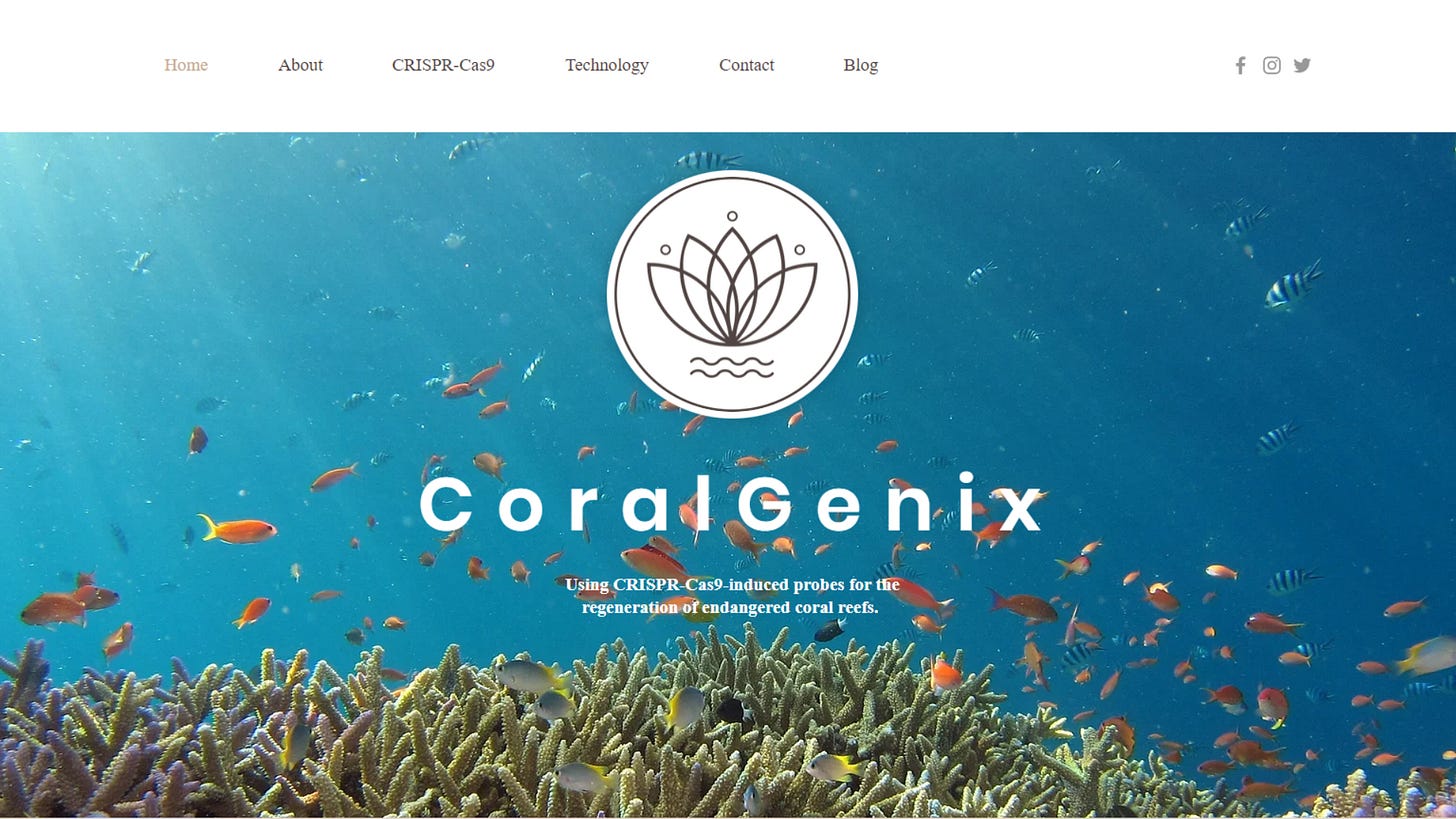
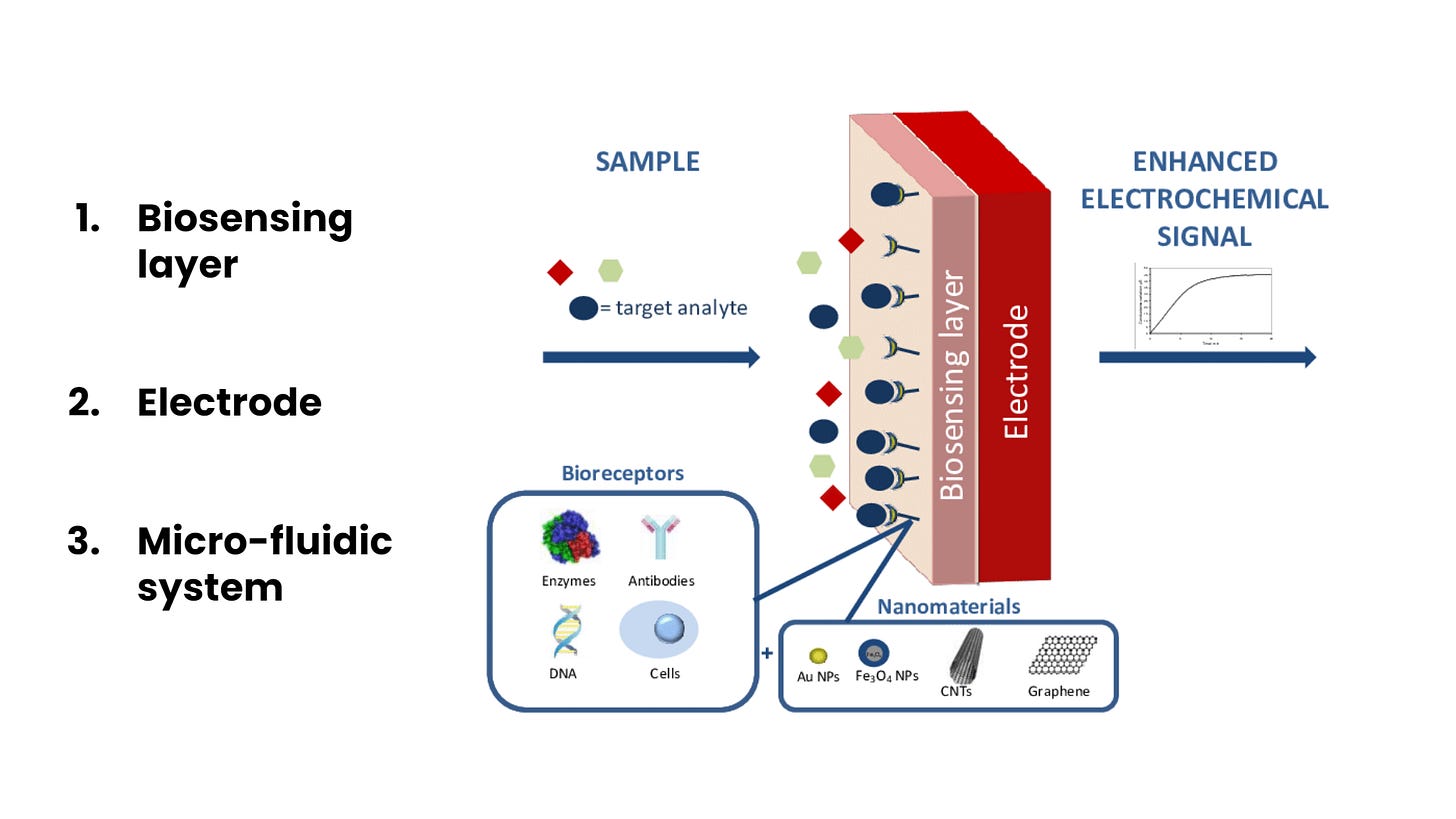
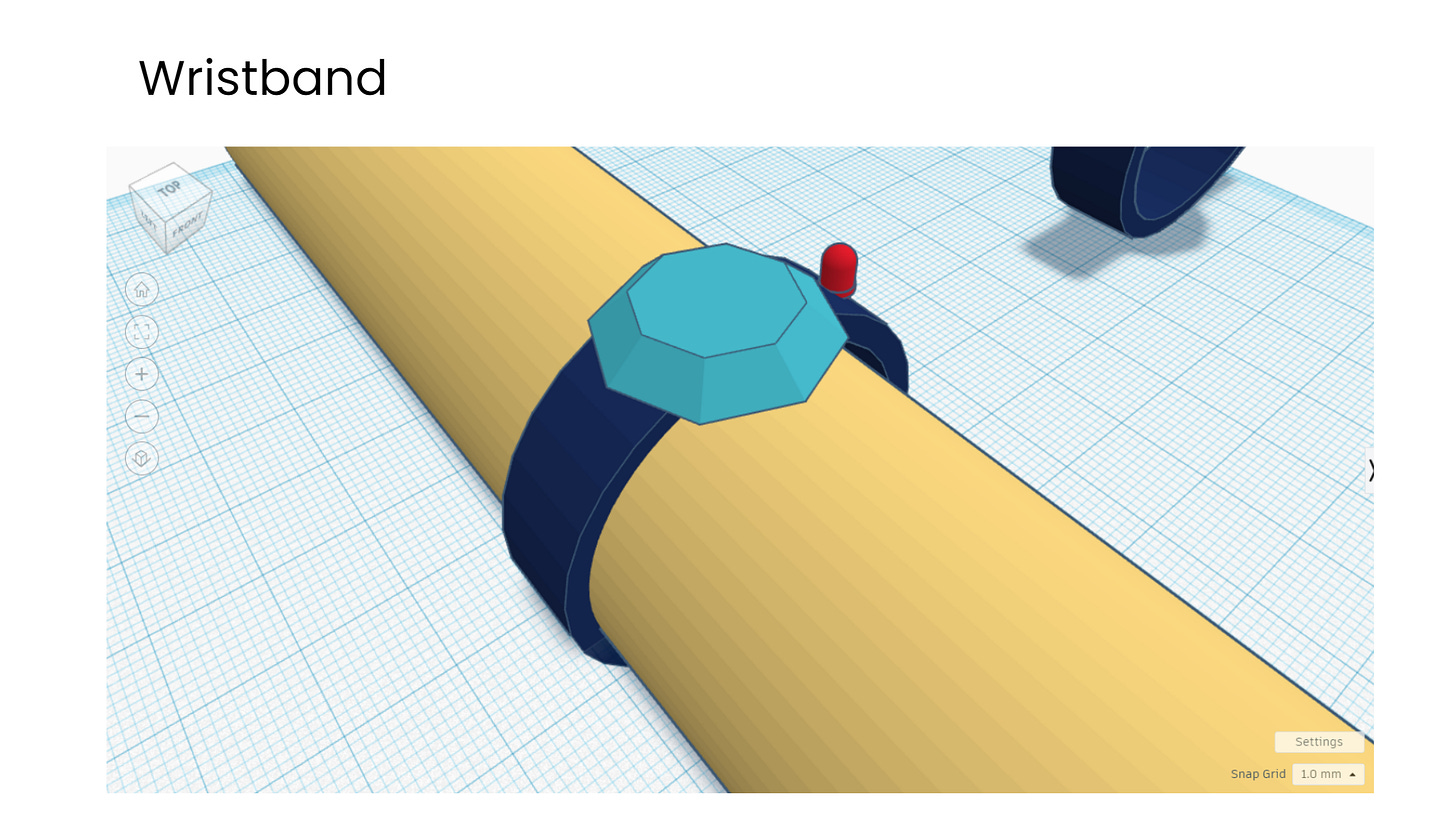
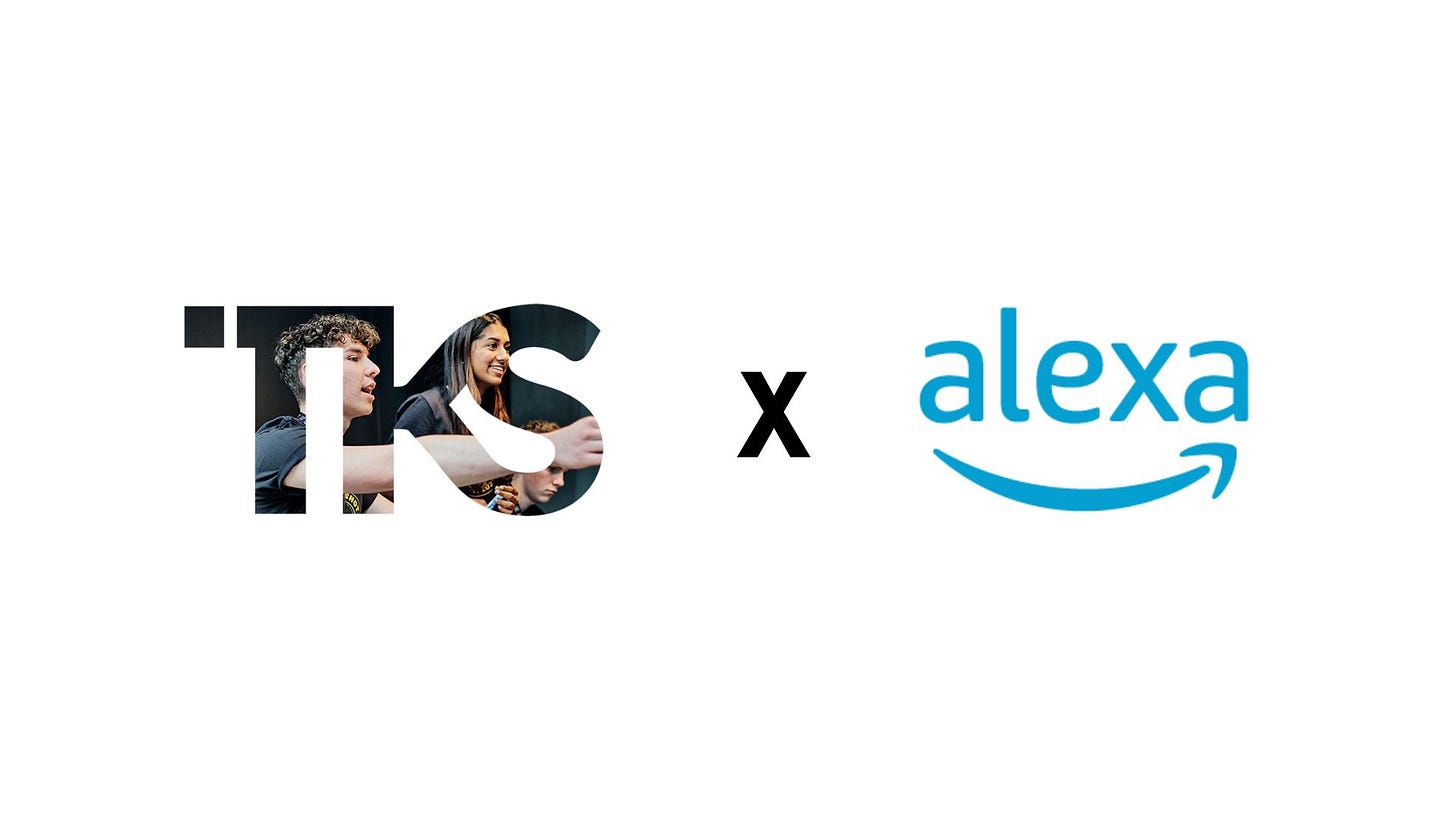
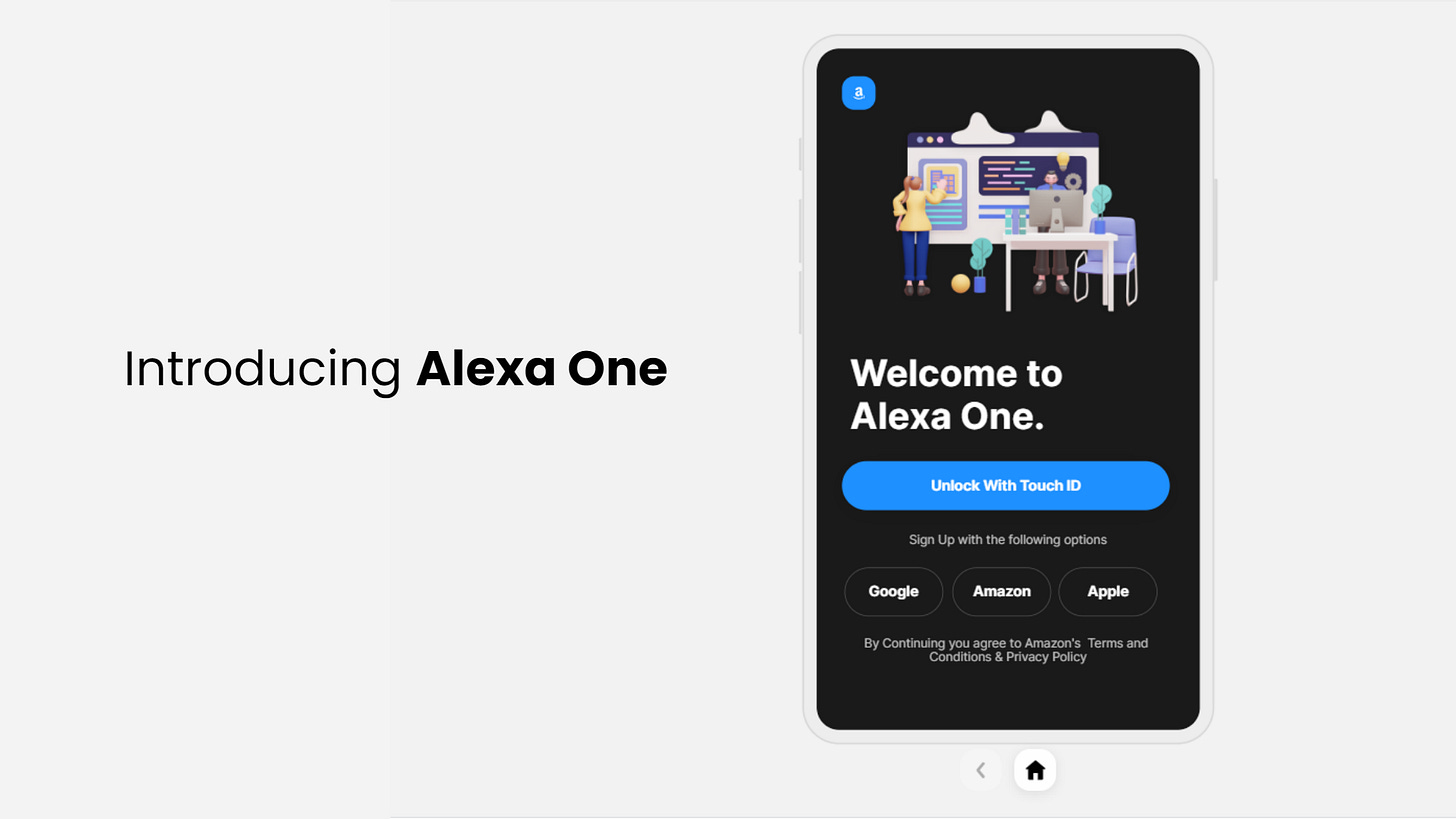
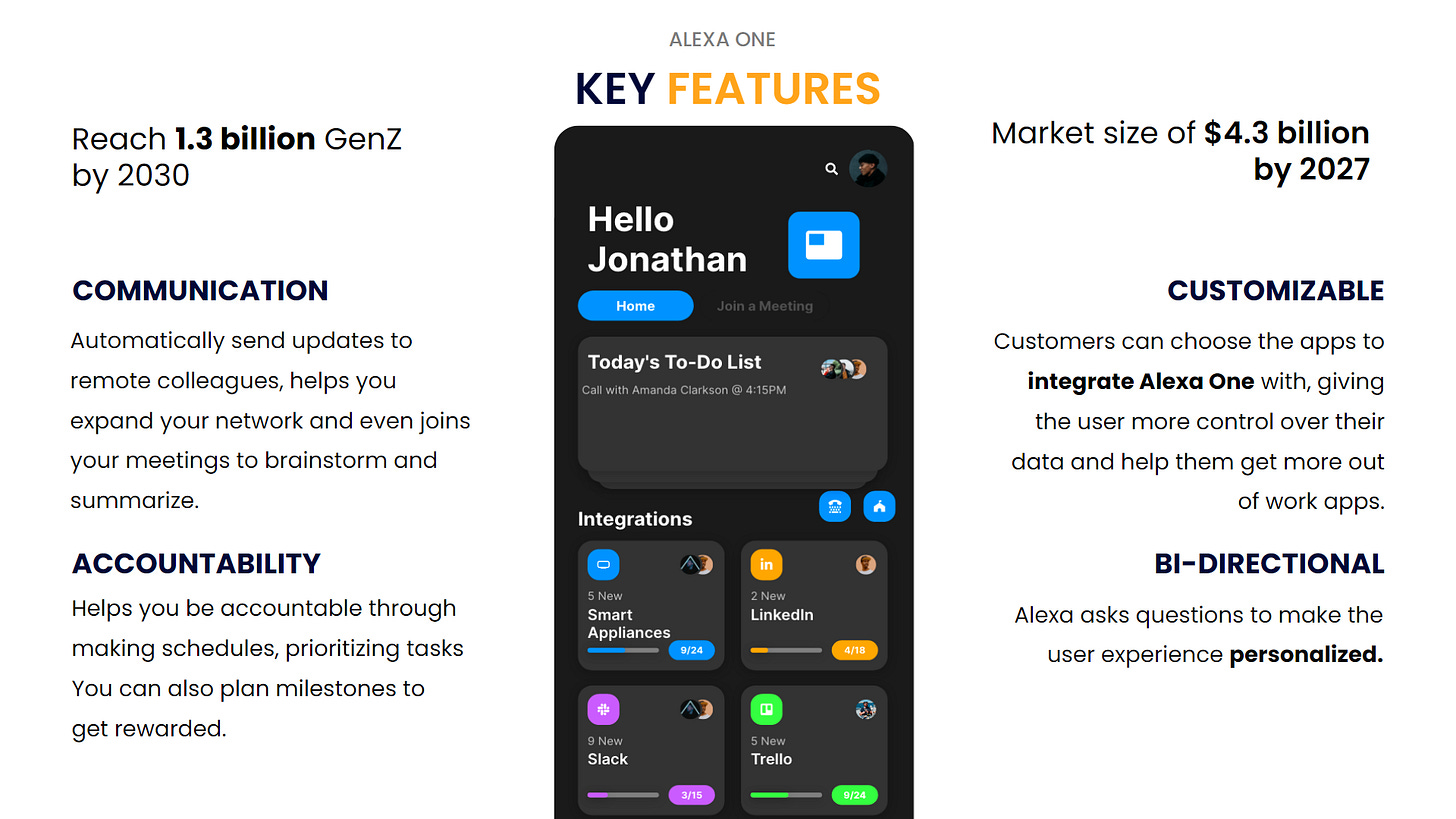
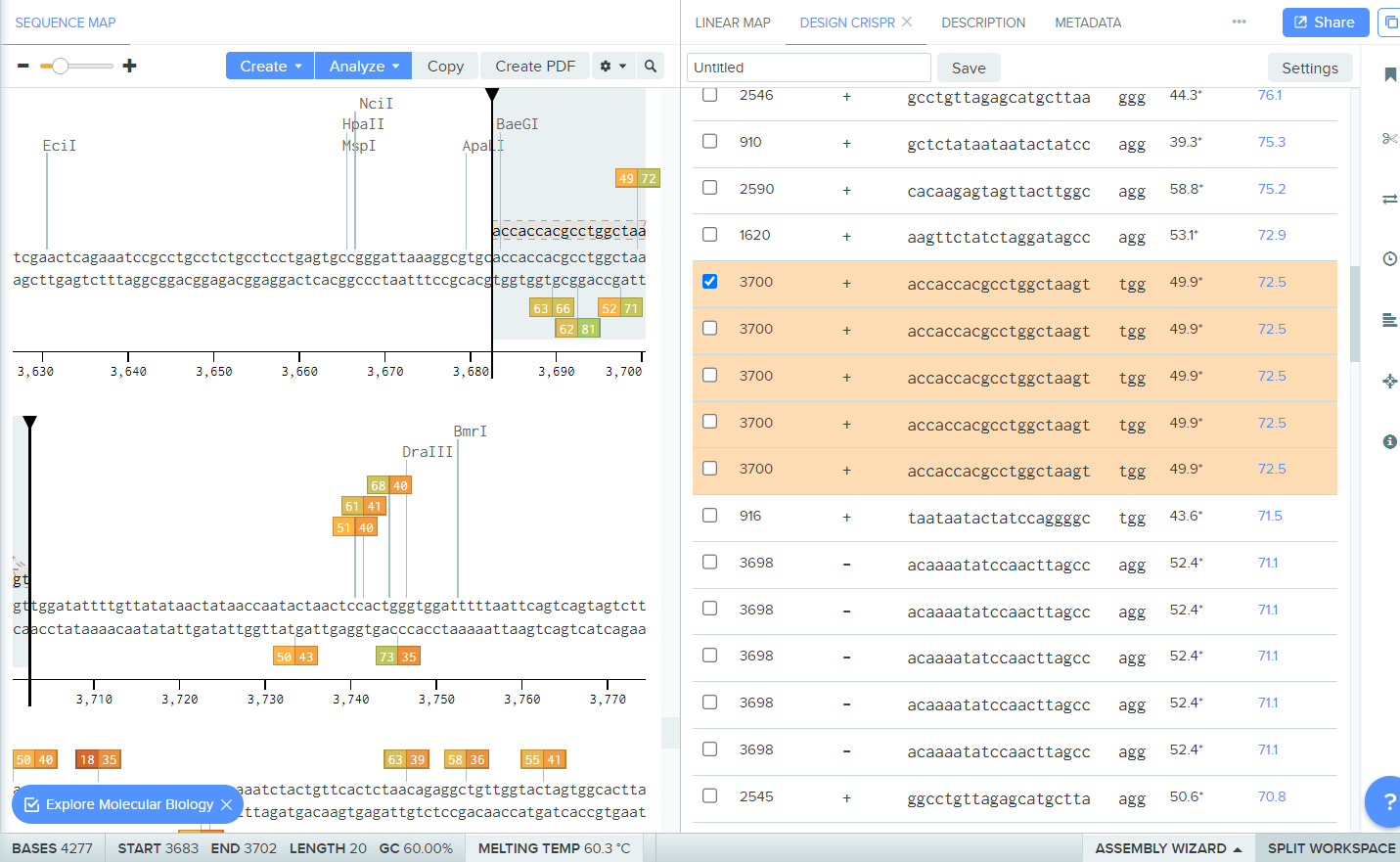
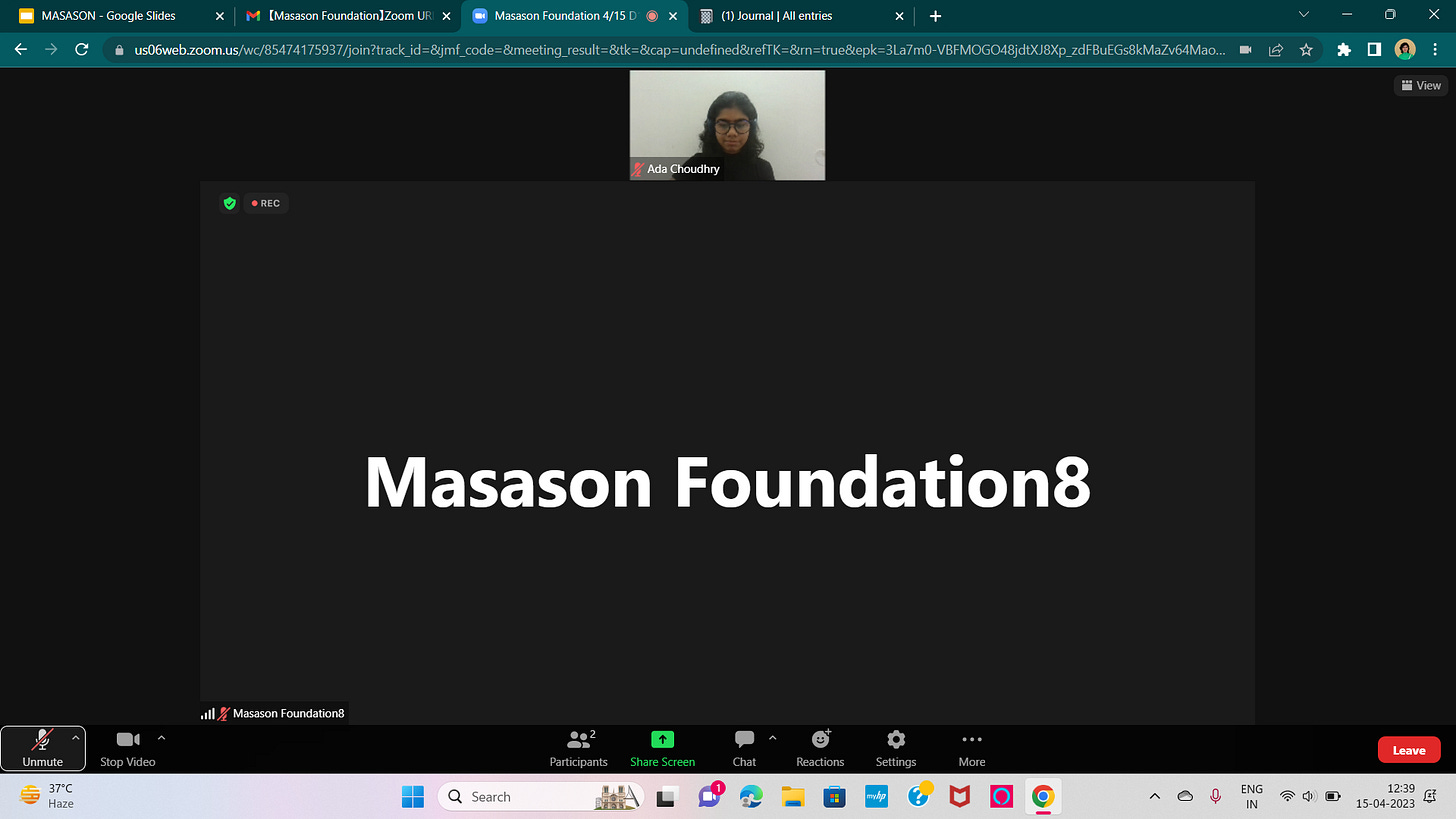
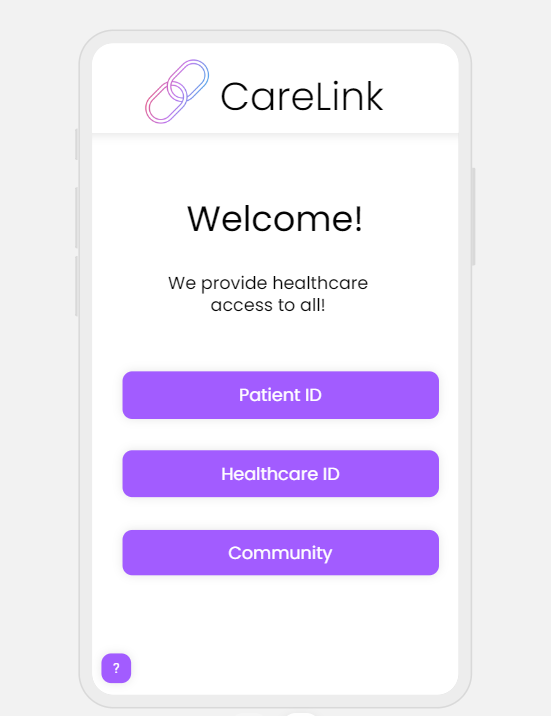
wow so impressive Ada 🫶